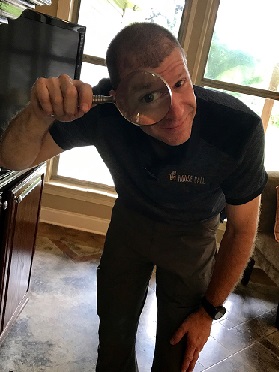Today we’re going to talk about marketing and it’s effect on our business. If we’re just starting out in the business world, trying to figure out marketing can be a daunting task. Even if we’ve already got an established brand, marketing can still cause us headaches and plenty of sleepless nights. It seems like everywhere we turn, there’s someone who’s all too glad to provide us with access to their solid gold, can’t miss, fool-proof marketing plan (for a nominal fee, of course.) And even though some of these plans may prove to be legitimate and can produce results, it can seem impossible to be able to discern the real plans from the scams. Ultimately, the idea that should direct our marketing plan was provided by Michael Hyatt, author, blogger, speaker, and former CEO, who said “Marketing is really just about sharing your passion.”

Unless we were lucky enough to have gone to college and graduated with a marketing degree, this part of our business can present us with considerable challenges. To be able to have have long term success, we need to have a discernible goal in mind for our marketing efforts. And while it’s all too easy to simply say that our marketing goal is to have more customers, we should strive to achieve a more all-encompassing goal.
The ultimate goal of our marketing efforts should be to build trust in our brand and to position ourselves as an authority in our industry.
In a recent podcast, Scott Baradell, the president and founder of Idea Grove, a public relations and marketing firm, talked in-depth about marketing and the types of customers that can be attracted by an effective marketing campaign. While it may seem strange to talk about having various types of clients (after all, aren’t we just looking for someone to spend money with us?), his explanation certainly got me thinking about the effects of different types of marketing on our business.
He talked specifically about the two different types of customers that we can attract: now buyers and future buyers. Scott said that immediate marketing, spending money to get that customer to buy today, can be an effective way to draw clients to a business. Unfortunately for us, while it gets them through the door, the results are usually short-lived. As soon as we stop spending the marketing money, the customers stop calling.
He recommends taking a long-term approach by using content marketing to position ourselves as an expert in our field. By establishing ourselves as the go-to person in our area, and building trust in our brand, we can become the main person that our potential clients think of whenever they’re in need of someone’s services. Work hard enough at this, and eventually our name becomes synonymous with our industry.
While taking a long-term approach to marketing will probably not produce immediate results, the long-term benefits are certainly worth the investment.
Scott recommends that approximately 75% of our marketing be content based, providing value to our clients without directly making a sales pitch for our services. This leaves us with 25% of our marketing to use to attract clients immediately. Obviously, we need customers now (to keep the doors open), or we won’t be around long enough to see the results of all our long-term marketing. We’ve just got to make sure that we keep our eyes on those ultimate goals while we’re running the day to day of our business.
Content builds relationships. Relationships are built on trust. Trust drives revenue.
Andrew Davis
While the term ‘content marking’ may seem mysterious to most of us, it simply means supplying our clients with information that will educate them and potentially make their job and their lives easier. If we’re a home inspector, we could teach our Realtors about AFCI breakers and the benefits they provide to a homeowner. By simply sharing our knowledge, we’re accomplishing many different things at once:
- We educate them about safety, which can benefit them personally and professionally.
- We potentially gain an ally who can help us when we’re trying to explain a safety defect during an inspection.
- We begin the process of becoming (in their eyes) an expert in our field.

Content marketing can take many different forms. We could use our website to put out useful information, like regularly posting on a blog. We could utilize social media to it’s fullest, putting out different infographics on a consistent schedule, utilizing a scheduling service like Buffer.com. Or we could simply make sure that we’re routinely showing up wherever our potential customers are, providing some type of service, like feeding, helping, or educating them. Regardless of the strategies we use, the most important thing about content marketing is that we keep our name in front of our potential audience, while we try to engrain in their minds that we’re the most knowledgeable person that they know in our industry.
Author and Chief Strategy Officer for the Content Marketing Institute, Robert Rose, said it best: “Marketing is telling the world you’re a rock star. Content Marketing is showing the world you are one.” By backing off the pedal just a little bit, and spending more of our marketing time showing everyone just how valuable an asset we can be to them and their businesses, we can slowly grow our audience of potential future buyers, and ensure ourselves a long and prosperous career.
Get out there and show the world you rock!
I welcome all feedback (both positive and negative) on this post.
Please take a moment to leave a comment below. Thank you!
Please Share with Friends!
Thanks, Joe

